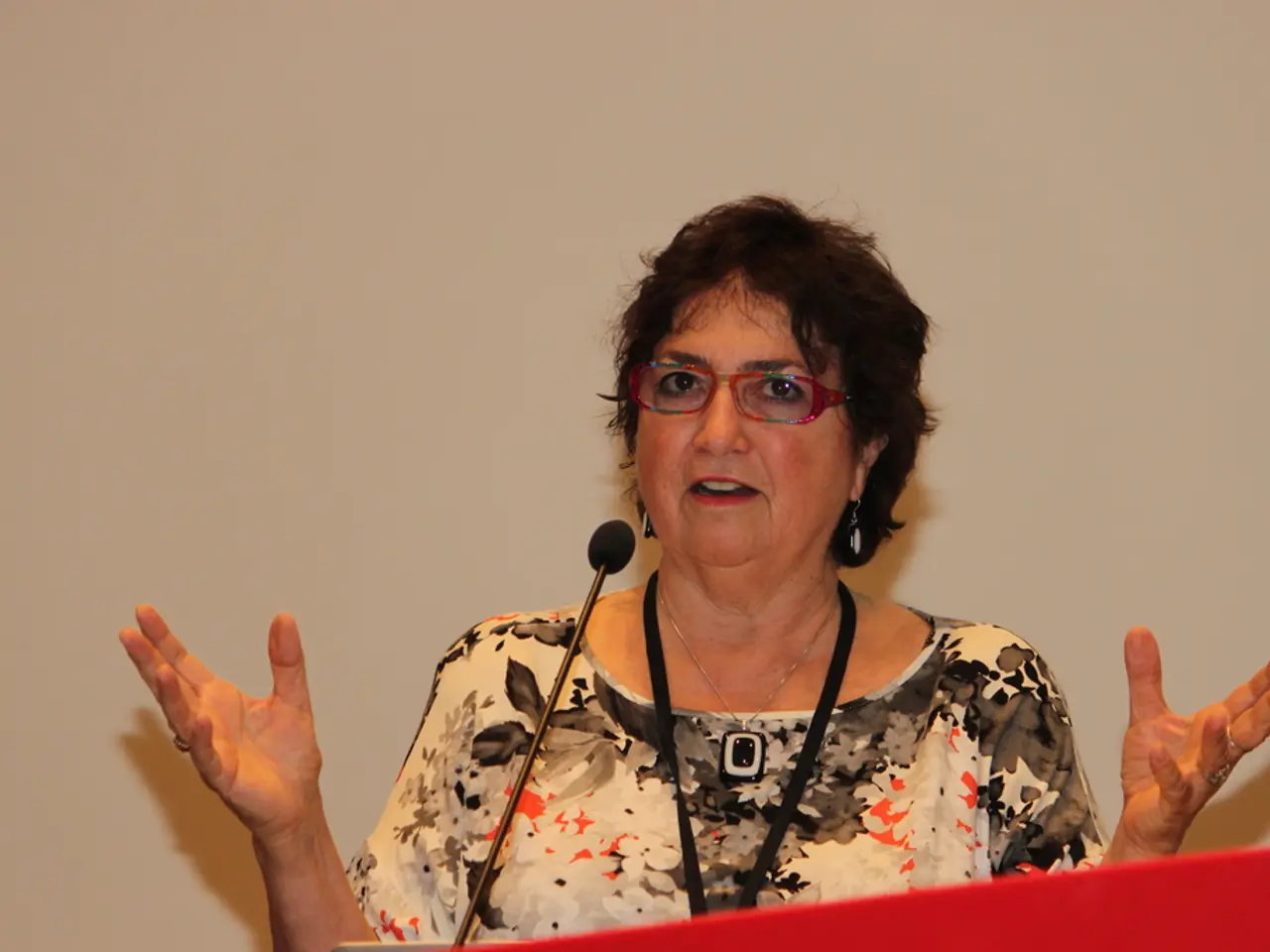Legal petition submitted to assert unsuitability of KEMSA CEO Waqo for office
News Article: Court Petition Challenges Legality of Dr. Waqo's Appointment at KEMSA
A court petition has been filed against Dr. Waqo Dulacha Ejersa, the CEO of Kenya Medical Supplies Authority (KEMSA), alleging breaches of the Constitution and election laws. The legal challenge questions the legality and integrity of his appointment, raising issues about constitutional conformity and potential violations related to election laws in the process of his selection.
The petition, filed by Dr Magare-Gikenyi, Dishon Mogire, and Philemon Nyakundi, accuses Dr. Waqo of participating in the 2022 General Election as a candidate while still holding a senior role at the Ministry of Health, which they claim is a violation of the Constitution. Additionally, they allege that the KEMSA Board engaged in unlawful administrative restructuring, including the irregular creation of positions without statutory basis.
The lawsuit lists 11 respondents, including Dr. Waqo, KEMSA, the Ministry of Health, the Public Service Commission, the Ethics and Anti-Corruption Commission (EACC), the Attorney General, and the Independent Electoral and Boundaries Commission (IEBC). The petitioners argue that the KEMSA Board's appointment of Dr. Waqo as CEO was illegal and amounted to a usurpation of the Cabinet Secretary's powers.
The petitioners claim that KEMSA, the Ministry of Health, the Public Service Commission, and other relevant bodies failed in their due diligence regarding Dr. Waqo's appointment. They further accuse the KEMSA Board of appointing an individual lacking in personal integrity as defined under Chapter Six of the Constitution.
The KEMSA Board shortlisted three candidates for the CEO position: Dr Andrew Mutava Mulwa, Dr Waqo Dulacha Ejersa, and Hussein Adan Mohammed. However, the then Cabinet Secretary for Health, Susan Nakhumicha, endorsed Dr. Mulwa for the position. Despite this, Dr. Waqo was appointed as CEO, a move the petitioners say is riddled with procedural and legal irregularities.
Just weeks after losing the Saku parliamentary race in August 2022, receiving 6,441 votes, Dr. Waqo was appointed CEO of KEMSA. The petitioners allege that this action was a case of institutional failure and constitutional violation.
Dr. Waqo, meanwhile, has been publicly emphasizing reforms in procurement practices at KEMSA. However, these reforms have not been directly connected to the legal challenge. The IEBC has been named as an interested party for having cleared Waqo to run in 2022 without ensuring compliance with Article 99.
Dr. Waqo and several respondents have filed preliminary objections arguing that the case is time-barred. No official responses or rulings have been reported yet. The court is yet to rule on the matter.
[1] The Standard, "KEMSA board appointed Waqo as CEO without Cabinet Secretary's nominee," 15 September 2022. [2] Nairobi News, "Court petition seeks to nullify Waqo's appointment as KEMSA CEO," 16 September 2022. [3] Daily Nation, "KEMSA CEO Waqo promises reforms in procurement practices," 20 September 2022.
- The petitioners argue that the appointment of Dr. Waqo at KEMSA violated the Constitution and election laws.
- The lawsuit alleges that Dr. Waqo, while holding a senior role at the Ministry of Health, participated in the 2022 General Election as a candidate, which is a claimed violation of the Constitution.
- The petitioners also accuse the KEMSA Board of engaging in unlawful administrative restructuring, including the irregular creation of positions without statutory basis.
- The legal challenge questions the legality and integrity of Dr. Waqo's appointment, raising concerns about constitutional conformity and potential violations related to election laws.
- The KEMSA Board shortlisted three candidates for the CEO position, but endorsed Dr. Mulwa, who was not ultimately appointed.
- The petitioners claim that the KEMSA Board's appointment of Dr. Waqo as CEO was illegal and amounted to a usurpation of the Cabinet Secretary's powers.
- No official responses or rulings have been reported yet regarding the preliminary objections filed by Dr. Waqo and other respondents.
- The court is yet to rule on the matter, but it has been reported by The Standard, Nairobi News, and Daily Nation.
- Business and industry leaders are watching the case closely, as it could set a precedent for future appointments in the health sector and beyond.
- In addition to health, the case raises questions about the role of administrative restructuring in bureaucracies and its potential impact on accountability and transparency.
- As more details about the case emerge, stakeholders in the environmental science and industry are monitoring the situation to understand how it will affect business operations and sustainability practices, such as waste management and resource conservation.
- Similarly, financial experts in banking and insurance, wealth management, venture capital, private equity, and the housing market are following the proceedings to assess their potential impact on investments in the Kenyan economy.
- In the world of entrepreneurship, digital startups and small businesses are keenly interested in the outcome of the case, as it may influence the regulatory environment and the level of competition within the market.
- Cybersecurity experts are keeping a close watch on the situation, as any potential breaches of privacy or confidentiality during the case could have far-reaching implications for digital security in Kenya.
- The automotive industry has taken note of the case, as concerns about policy and legislation affecting the sector, such as the national transportation and emissions standards, could be impacted by this legal challenge.
- In the realm of public transit and transportation, officials are evaluating the implications of the case on project financing, contracts, and partnerships, as well as the potential impact on the infrastructure development in Kenya.
- Leadership and diversity and inclusion advocates are debating the implications of the case for the KEMSA Board's decision-making process, focusing on issues such as the Appointments and Promotions Policy, the Code of Conduct, and the Board's role in ensuring a diverse and inclusive workplace.
- Energy companies and officials are analyzing the potential effects of the case on power generation, distribution, and consumption, as well as the role of renewable energy and climate change policy.
- The retail sector is examining the case to determine its potential impact on pricing, supply chain management, and consumer relationships.
- Space and astronomy enthusiasts are curious about the case and its potential impact on space exploration and scientific collaboration projects involving Kenya.
- Smart home devices and gadgets manufacturers are keeping an eye on the situation, with concerns about data protection, privacy, and cybersecurity.
- In finance, experts are evaluating the case's potential impact on financial reporting, accounting, and auditing practices at KEMSA, and its influence on investor confidence.
- In the realm of personal finance, individuals are trying to understand the case's implications for their own financial planning and decision-making in the context of budgeting, saving, debt management, and investing.
- Legal professionals are discussing the case in terms of the role of constitutional conformity, due diligence, and the principles of good governance in executive appointments.
- In the realm of health and wellness, practitioners and patients are monitoring the situation to determine its potential impact on medical-conditions, respiratory-conditions, digestive-health, eye-health, hearing, skin-conditions, and other aspects of health.
- Diversity and inclusion experts in tech and fintech industries are debating the case's implications for corporate culture, recruitment, and retention practices as they may lead to more inclusive and equitable decision-making environments.
- Climate change activists are seeking to understand the case's impact on policy-and-legislation, concerning environmental conservation, green industries, and carbon emissions reduction strategies.
- Policy and advocacy groups are closely watching the case to evaluate its potential impact on policy and legislative decision-making at the national level.
- Political analysts are considering the case within the broader context of politics and policy-making, with concerns about policy-and-legislation, accountability, and transparency in government agencies.
- The general public is following the case with interest, as it raises important questions about the integrity of government appointments and the role of oversight bodies in ensuring public trust and accountability.



